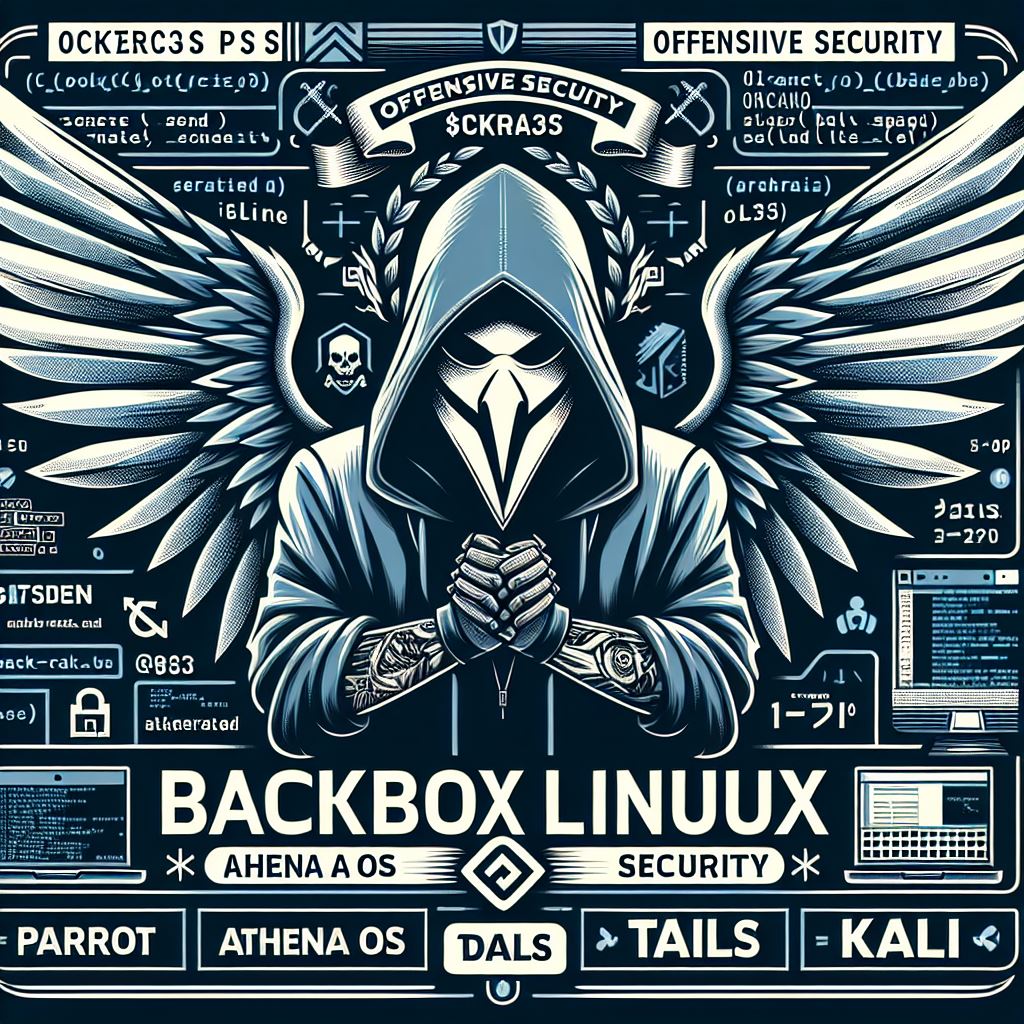In the world of cybersecurity, the operating system you choose can make a substantial difference in both your workflow and effectiveness. Each of these specialized Linux distributions offers unique tools, configurations, and advantages for security professionals, ethical hackers, and privacy-focused users. Let’s dive into their individual histories, core features, pros, and cons to help you decide which one aligns best with your goals.
1. BackBox Linux
Overview: Developed in Italy, BackBox Linux was created as a streamlined, Ubuntu-based platform focused on penetration testing and vulnerability assessments. Its lightweight structure prioritizes speed, making it a popular choice for analysts seeking an efficient platform without excess resource use.
- History: Originating in 2010, BackBox was intended to provide a user-friendly alternative in the penetration testing space with an emphasis on minimalism and efficiency.
- Key Tools: BackBox includes tools for forensics, exploitation, and web analysis. Some notable ones are OpenVAS, OSSEC, and Metasploit, offering robust support for a range of security operations.
- Pros:
- Lightweight and fast, reducing lag during intensive tasks.
- Strong community support with regular updates.
- User-friendly interface suitable for beginners.
- Cons:
- Smaller tool selection compared to distributions like Kali.
- Lacks the depth of resources for advanced forensics.
2. Athena OS
Overview: Athena OS is a relatively new distribution built from the ground up for cybersecurity professionals. It’s optimized for both offensive and defensive security tasks and offers a flexible platform for testing and vulnerability assessments.
- History: Developed as a modern solution, Athena OS is designed to tackle current cybersecurity challenges and is widely customizable.
- Key Tools: Athena OS includes flexible modules for network analysis, forensics, and malware research, such as Cuckoo Sandbox, Wireshark, and Nmap.
- Pros:
- Highly customizable with modular options.
- Broad toolset that covers offensive and defensive security.
- User interface with a modern, professional aesthetic.
- Cons:
- Newer distribution, so community support is still growing.
- Not as extensively tested as more established distributions.
3. Parrot Security OS
Overview: Parrot OS offers a versatile, Debian-based environment equipped for penetration testing, forensics, reverse engineering, and anonymous browsing. Known for its extensive toolset and privacy features, it’s ideal for users who prioritize anonymity and a wide range of functionalities.
- History: Parrot was launched in 2013 by the Frozenbox Team to cater to privacy and security enthusiasts, emphasizing user anonymity.
- Key Tools: With tools like Tor, AnonSurf, Metasploit, and Radare2, Parrot supports an extensive suite for analysis and secure browsing.
- Pros:
- Built-in support for anonymous browsing and encryption.
- Regularly updated to ensure optimal security.
- Strong community and developer support.
- Cons:
- Heavier on resources, which can slow down older systems.
- Complexity of tools may require more expertise from users.
4. Tails OS
Overview: Tails is a Debian-based system designed specifically for preserving privacy and anonymity. Known as “The Amnesiac Incognito Live System,” Tails is meant to be used as a live operating system, ensuring no data persists between sessions.
- History: Tails gained popularity as a preferred choice for journalists and activists, especially after being endorsed by privacy advocates and whistleblowers like Edward Snowden.
- Key Tools: Includes Tor for anonymous browsing, VeraCrypt for encryption, and tools for secure communication.
- Pros:
- Unsurpassed in privacy and anonymity-focused features.
- Operates in live mode, making it highly secure for sensitive tasks.
- Leaves no trace on hardware.
- Cons:
- Limited functionality for penetration testing and security assessments.
- Minimal tools for offensive security, as its primary focus is on privacy.
5. Kali Linux
Overview: Arguably the most famous cybersecurity-focused Linux distribution, Kali Linux is based on Debian and renowned for its comprehensive toolset and large user community. It’s often the go-to OS for professional penetration testers and ethical hackers.
- History: Developed by Offensive Security in 2013, Kali is a successor to BackTrack, the original security-focused Linux distribution that helped define the industry.
- Key Tools: With over 600 tools, including Wireshark, Aircrack-ng, Burp Suite, and John the Ripper, Kali covers every aspect of security testing.
- Pros:
- Extensive toolset for every facet of cybersecurity.
- Strong documentation and support from the cybersecurity community.
- Often regarded as the industry standard for penetration testing.
- Cons:
- Resource-intensive, which can impact performance on older systems.
- Complexity and depth of tools may be overwhelming for beginners.
| Operating System | History | Tools | Strengths | Weaknesses |
|---|---|---|---|---|
| BackBox Linux | Founded in 2010 as a lightweight, Ubuntu-based distribution focused on security and penetration testing. | Metasploit, Nmap, Wireshark, Aircrack-ng, Burp Suite, John the Ripper, and more. | Lightweight, Ubuntu-based, Easy installation, Extensive community support. | Limited tool selection compared to Kali, Smaller community. |
| Athena OS | A security-focused OS created specifically for penetration testing and digital forensics. | Aircrack-ng, John the Ripper, Metasploit, Hydra, Nikto, Netcat, Nmap. | Focus on penetration testing, Digital forensics tools, Built-in tools for security auditing. | Less known compared to other distributions, Limited online resources and community. |
| Parrot Security OS | Introduced in 2013, a Debian-based distribution focusing on security, privacy, and forensics. | Metasploit, Nmap, Aircrack-ng, AnonSurf, Burp Suite, Wireshark, and more. | Lightweight, Privacy tools, Forensics capabilities, Suitable for both professionals and beginners. | Can be heavier on system resources, Sometimes less stable than Kali. |
| Tails | Developed for anonymous browsing and maintaining privacy, based on Debian. Focused on providing anonymity. | Tor, I2P, OnionShare, GnuPG, LUKS, Tails Persistence. | Maximum anonymity, Live OS, Runs on USB, Prevents metadata collection. | Not ideal for penetration testing, Limited tools for security professionals. |
| Kali Linux | Founded in 2013 as a Debian-based distribution, Kali Linux is one of the most popular penetration testing distros. | Metasploit, Aircrack-ng, Nmap, Burp Suite, Wireshark, John the Ripper, and many others. | Extensive toolset, Large community, Supports numerous platforms, Well-documented. | Heavy resource usage, Overwhelming for beginners, May require high system resources. |
